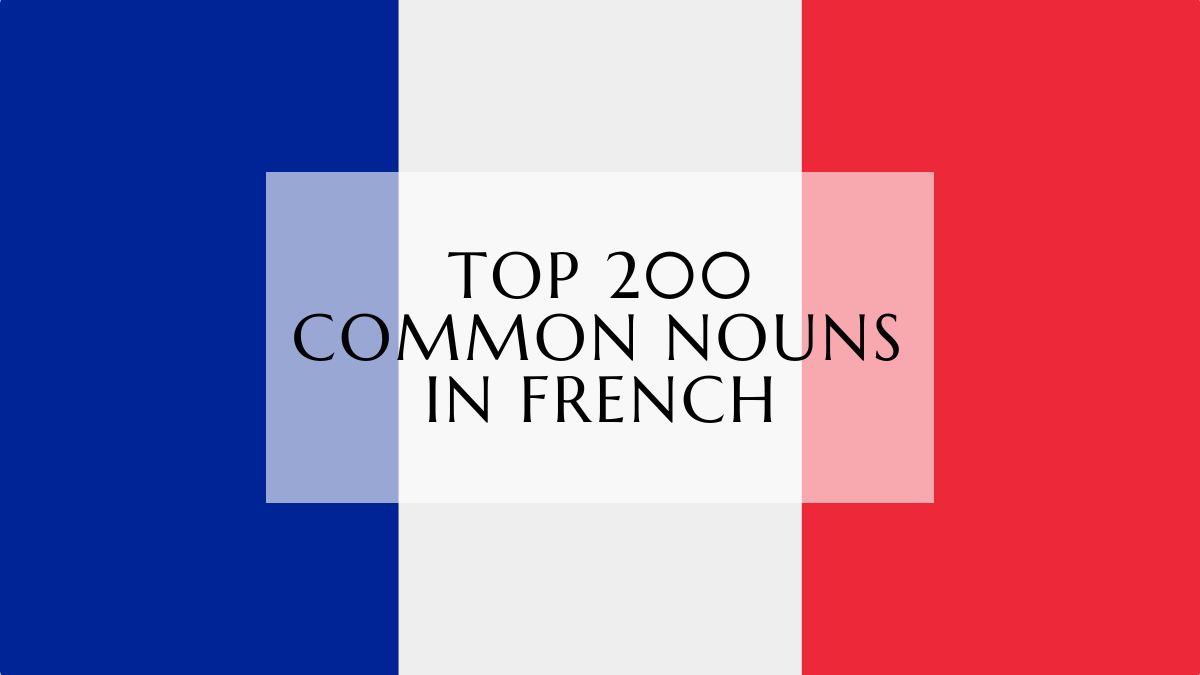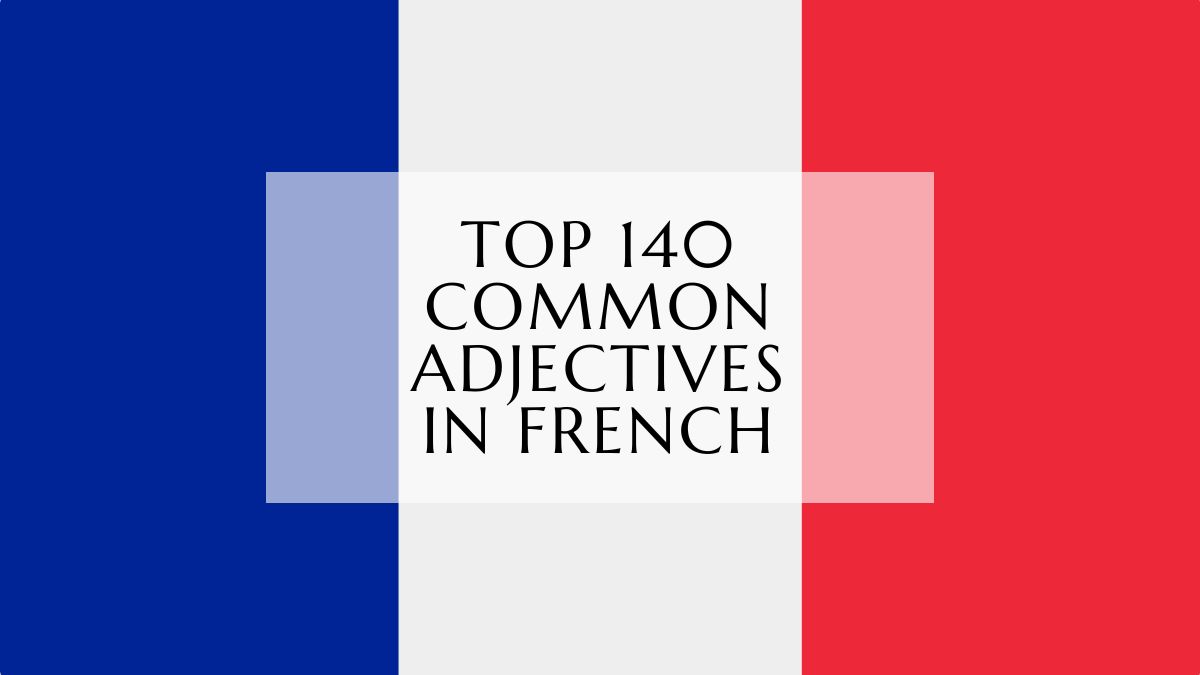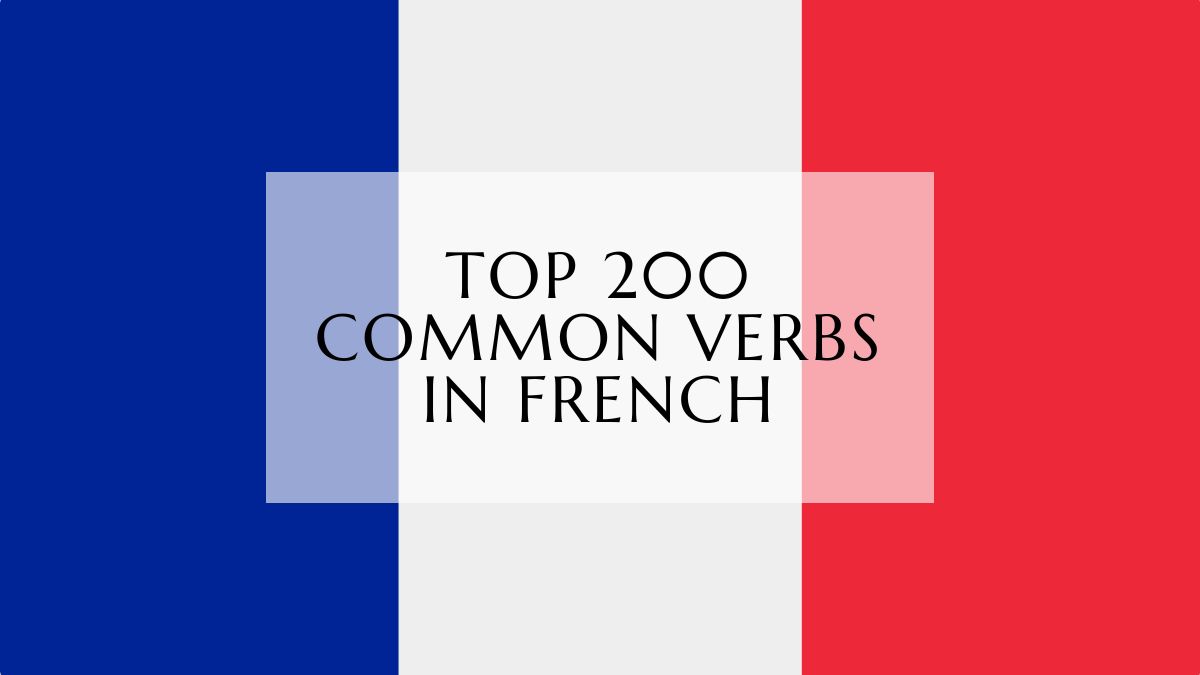In this lesson we will talk about the future tense in French, the two ways of expressing it, followed by examples.
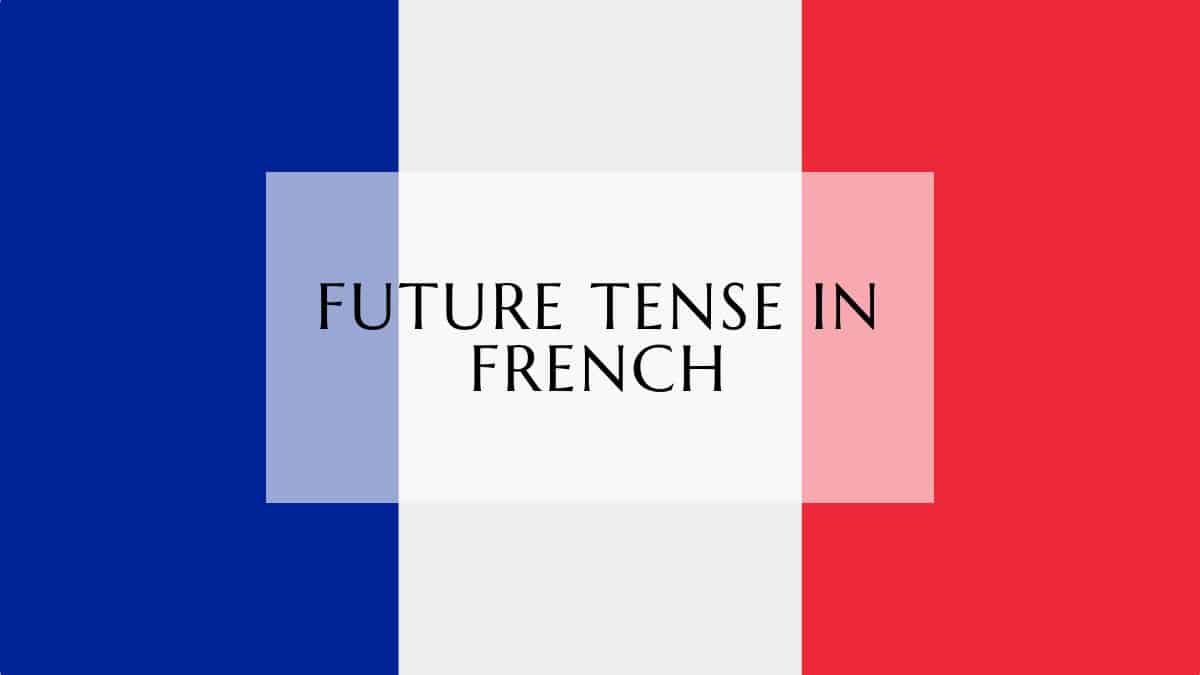
In French, there are two forms of the future: the near future “le futur proche” and the simple future “le futur simple” each one has its own use, which we will discuss:
The Near Future Tense In French
We use the near future “futur proche” to talk about actions that are certain to happen in the near future, like: the moment after now, tonight, tomorrow, next week.
To form the futur proche, we use the verb aller in its present tense form followed by the verb in action in the infinitive form, e.g: je vais manger (I am going to eat)
Here is the conjugation of the verb “aller” in the present:
| Je | vais |
| Tu | vas |
| il / elle / on | va |
| nous | allons |
| vous | allez |
| ils / elles | vont |
To form the negative sentence with the futur proche we use this structure: subject + ne + aller in the present + pas + the main verb in action in the infinitive form
E.g: Je ne vais pas manger (I’m not going to eat)
Note: you can practice what you’ve learned here, and learn how to pronounce each of the words in our Memrise course here, don’t know how to use the platform or sign up? we’ve got you covered in this easy-to-follow tutorial here.
The Simple Future
We use the simple future “le futur simple” to talk about things that will happen in the future like projects, predictions and actions for example.
To use verbs ending in -er and -ir in the futur simple we just need to add the following endings to the verb (in the infinitive):
| Je | -ai |
| Tu | -as |
| il / elle / on | -a |
| nous | -ons |
| vous | -ez |
| ils / elles | -ont |
Example: Parler (to speak)
| Je | parlerai |
| Tu | parleras |
| il / elle / on | parlera |
| nous | parlerons |
| vous | parlerez |
| ils / elles | parleront |
Example: Manger (to eat)
| Je | mangerai |
| Tu | mangeras |
| il / elle / on | mangera |
| nous | mangerons |
| vous | mangerez |
| ils / elles | mangeront |
Example: Finir (to finish)
| Je | finirai |
| Tu | finiras |
| il / elle / on | finira |
| nous | finirons |
| vous | finirez |
| ils / elles | finiront |
We conjugate the verbs that end with -re in the same way, the only difference is that you need to remove the “e” in -re before adding the futur simple endings:
Example: Répondre (to answer)
| Je | répondrai |
| Tu | répondras |
| il / elle / on | répondra |
| nous | répondrons |
| vous | répondrez |
| ils / elles | répondront |
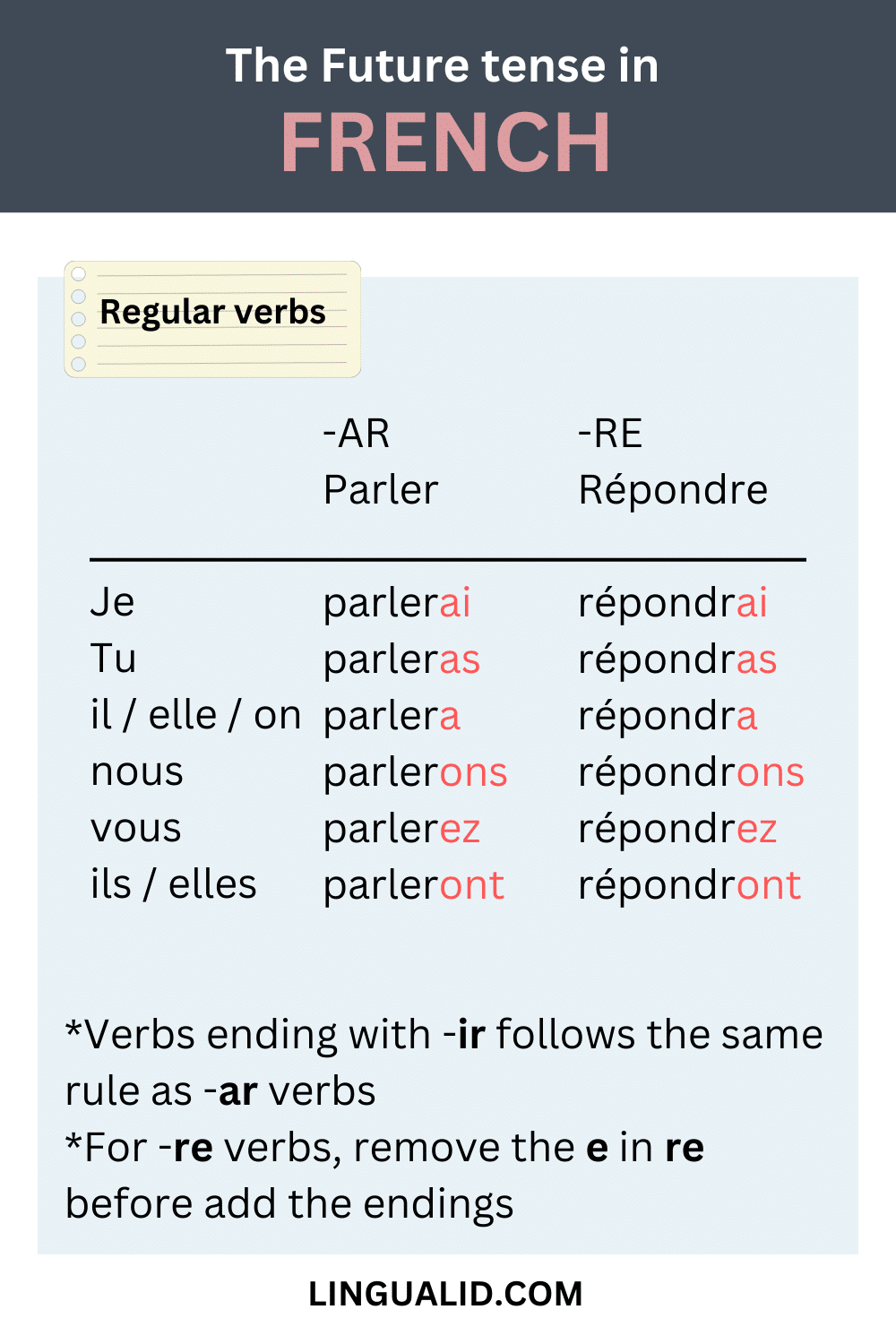
French Future Tense Review
Short Answer Questions
Instructions: Answer the following questions in 2-3 sentences.
- What are the two ways to express the future tense in French? Provide the French terms for each.
- Explain the difference in usage between the near future and the simple future.
- How do you form the near future tense in French? Provide an example.
- What is the structure for forming a negative sentence in the near future tense?
- How do you form the simple future tense for verbs ending in “-er” and “-ir”?
- Conjugate the verb “parler” (to speak) in the simple future tense.
- What is the difference in conjugation for verbs ending in “-re” in the simple future tense?
- Conjugate the verb “répondre” (to answer) in the simple future tense.
- Provide an example of a sentence using the near future tense and translate it to English.
- Provide an example of a sentence using the simple future tense and translate it to English.
Answer Key:
- The two ways to express the future tense in French are the near future (le futur proche) and the simple future (le futur simple).
- The near future is used for actions certain to occur in the very near future (tonight, tomorrow), while the simple future is used for actions further in the future and for predictions.
- The near future is formed using the present tense of “aller” + the infinitive of the action verb. For example: “Je vais manger” (I am going to eat).
- The negative near future is formed: subject + “ne” + present tense “aller” + “pas” + infinitive. Example: “Je ne vais pas manger” (I am not going to eat).
- For “-er” and “-ir” verbs in the simple future, add the following endings to the infinitive: -ai, -as, -a, -ons, -ez, -ont.
- “Parler” in the simple future: Je parlerai, Tu parleras, Il/Elle/On parlera, Nous parlerons, Vous parlerez, Ils/Elles parleront.
- Verbs ending in “-re” in the simple future drop the “e” before adding the endings: -ai, -as, -a, -ons, -ez, -ont.
- “Répondre” in the simple future: Je répondrai, Tu répondras, Il/Elle/On répondra, Nous répondrons, Vous répondrez, Ils/Elles répondront.
- “Demain, je vais visiter mes grands-parents.” (Tomorrow, I am going to visit my grandparents.)
- “L’année prochaine, je voyagerai en France.” (Next year, I will travel to France.)
Get a pdf file of this lesson and other 1000 essential French words now, write your email so we can send it to you:
Happy learning!
Oualid Cheddadi is the founder of Lingualid, a platform that inspires independent language learners worldwide, regardless of the language they are learning. The name “Lingualid” is derived from the Portuguese word for “language,” “língua,” and the last three letters of Oualid’s name, “Lid.”

